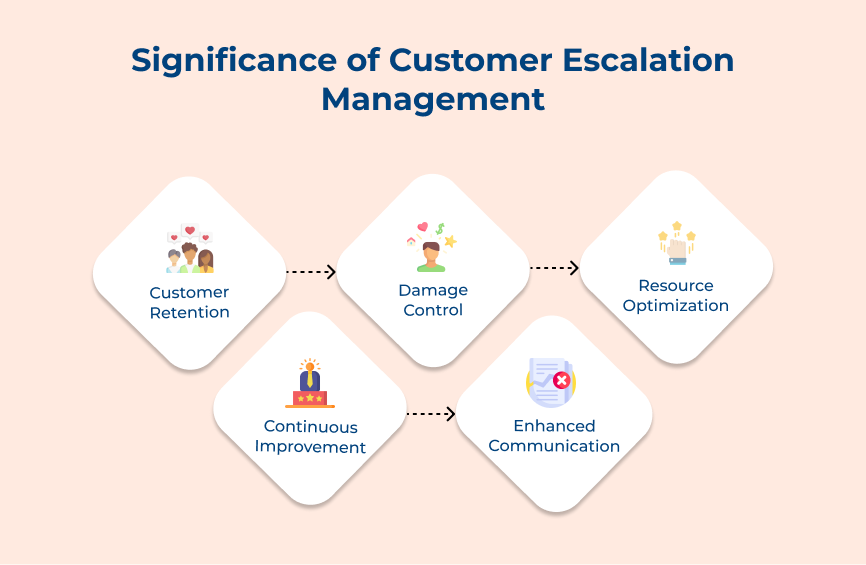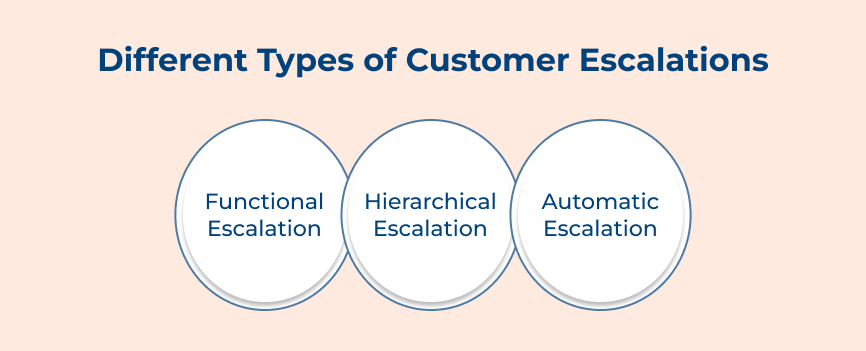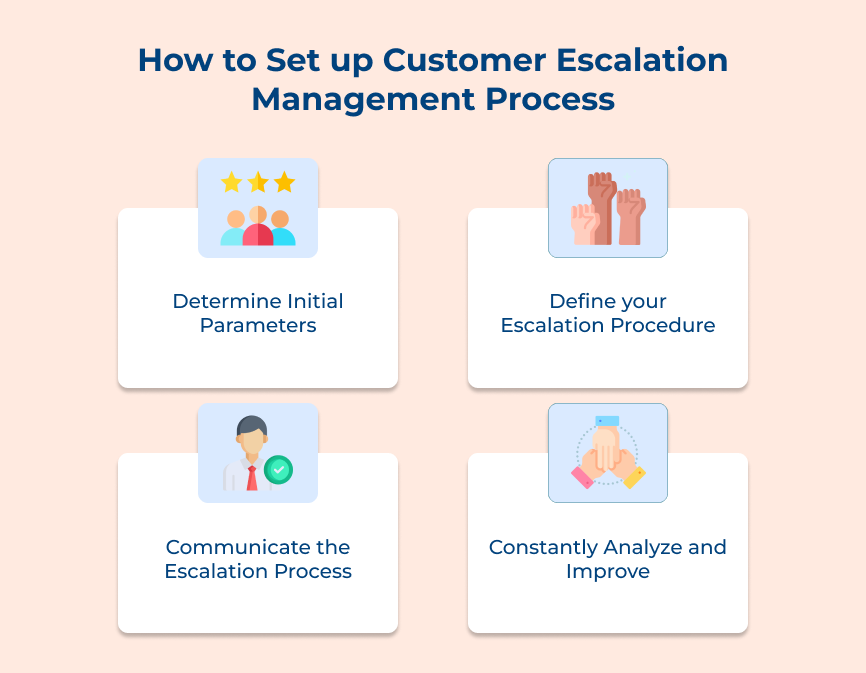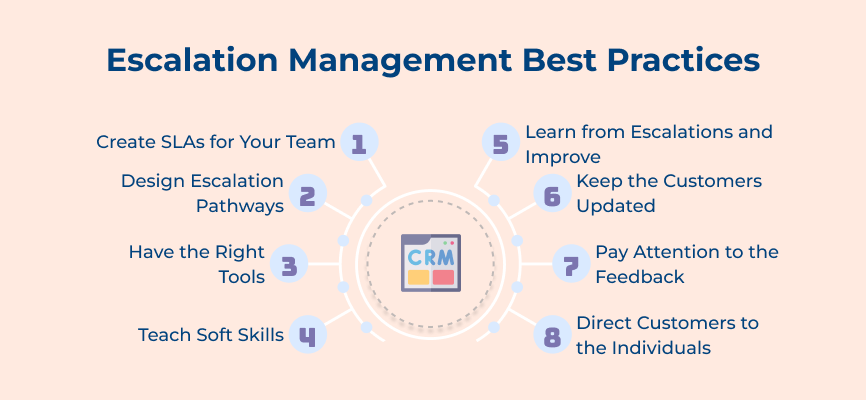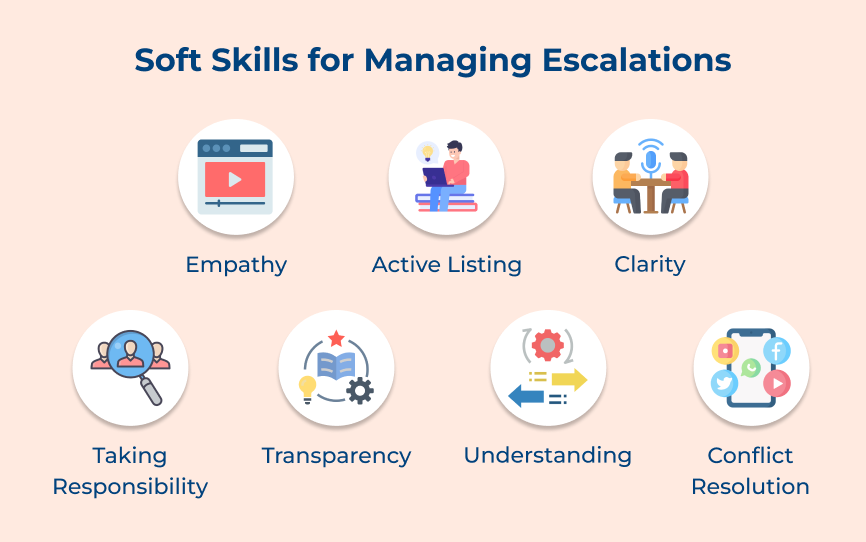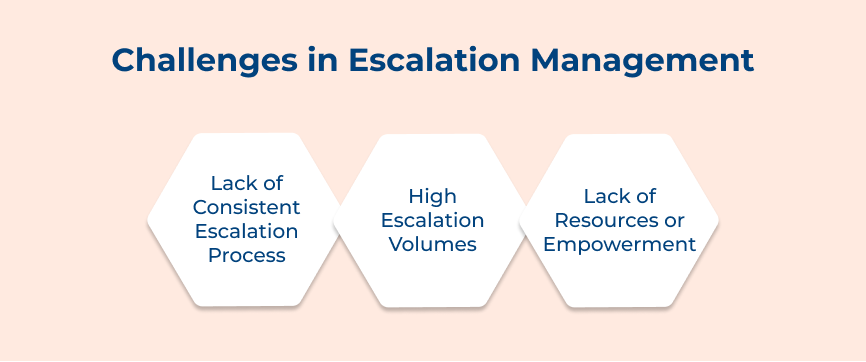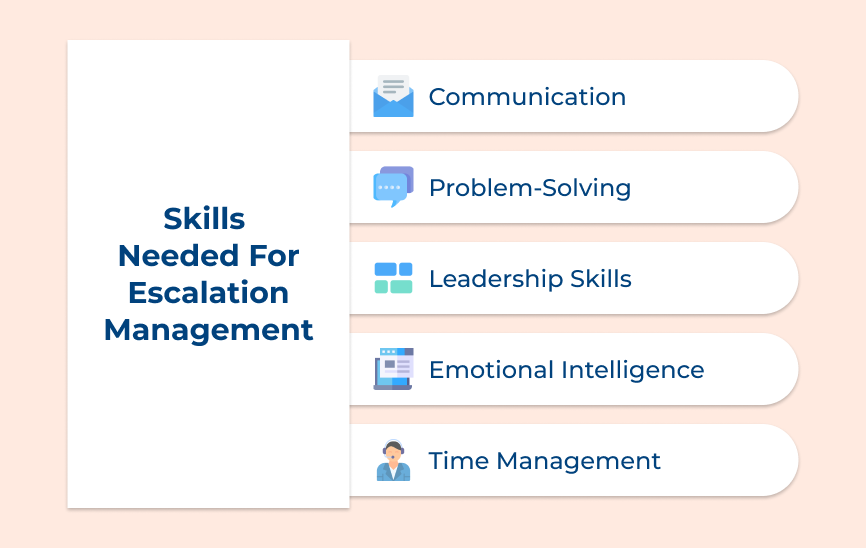1. Determine Initial Parameters
The first step in managing the customer support escalation process is to determine the initial parameters of the issue at hand. It includes understanding the nature of the problem and the impact it may have on the business involved.
Clearly defining the initial parameters allows the business to better assess the severity of the issue and establish a plan for escalation if necessary. Let’s look at an example of a customer experiencing a technical issue with a product. The initial parameters may include the specific details of the problem and the potential impact on customer satisfaction.
2. Define your Escalation Procedure
Once the initial parameters have been determined, the next step is to define the customer support escalation procedure. It involves outlining the steps that need to be taken to escalate the issue to the appropriate individuals or departments.
Having a clear escalation procedure in place allows the business to ensure that problems are addressed in a timely and efficient manner. A used case of escalation procedure may involve contacting a supervisor or manager if the issue cannot be resolved at the initial level.
3. Communicate the Escalation Process
Communication is key in the customer escalation management process. It is important to clearly communicate the escalation process to all individuals involved. It includes employees, customers and stakeholders.
Informing everyone of the process allows the brand to ensure that issues are escalated properly and resolved on time. Let’s look at an example of a business that may create a document outlining the escalation process and distribute it to all parties.
4. Constantly Analyze and Improve
The final step in the customer escalation management process is to constantly analyze and improve the procedures. Regularly assessing the effectiveness of the escalation process allows the business to identify any areas for improvement and make necessary adjustments.
Continuous improvement ensures that issues are addressed in the most efficient way possible. Let’s look at an example of a business that may conduct regular reviews of past escalations to identify any recurring issues. The business can implement changes to prevent them from happening in the future.
8 Escalation Management Best Practices
Below are the best practices for managing escalation effectively, ensuring that issues are resolved swiftly and amicably.






